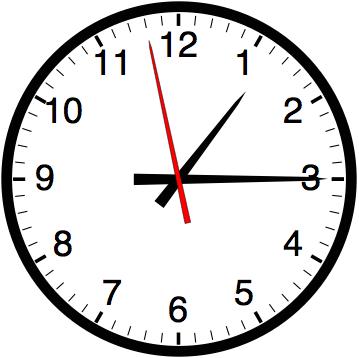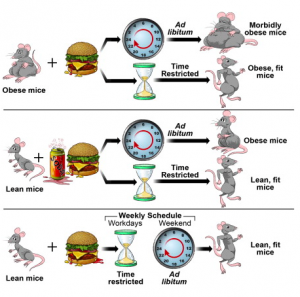Transparency is extremely important to us, so we are letting you know that we may receive a commission on some of links you click on from this page. See our disclaimer.
Everyone knows that you are what you eat. Now, it seems, you also might be WHEN you eat.
US News & World Report writes that “evidence has emerged suggesting that when we eat may matter more than previously believed, and as such, that the timing of our eating patterns may indeed be a contributing factor to whether we gain – or lose – weight on any given type of diet.”
Indeed, a 2013 study published in the journal Obesity — High caloric intake at breakfast vs. dinner differentially influences weight loss of overweight and obese women — noted that “Few studies examined the association between time-of-day of nutrient intake and the metabolic syndrome. Our goal was to compare a weight loss diet with high caloric intake during breakfast to an isocaloric diet with high caloric intake at dinner.” Their conclusion: “High-calorie breakfast with reduced intake at dinner is beneficial and might be a useful alternative for the management of obesity and metabolic syndrome.”
Added US News: “While this study's implications are limited by the fact that it was small, included only women and lasted a relatively short period of time, its findings nonetheless provide some pretty clear support to the hypothesis that the timing of our calorie intake matters in addition to the amount of our calorie intake. Or – that when we eat matters, too.”
A recent New York Times piece takes the timing question even further, suggesting one limits intake to a defined 12-hour period.
This piece references a study in Cell Metabolism, “Time-Restricted Feeding Is a Preventative and Therapeutic Intervention against Diverse Nutritional Challenges.” The study notes:
- Time-restricted feeding (TRF) confines food access to 9–12 hr during the active phase
- TRF is a therapeutic intervention against obesity without calorie restriction
- TRF protects against metabolic diseases even when briefly interrupted on weekends
- TRF is effective against high-fat, high-fructose, and high-sucrose diets
The New York Times piece concludes: “The upshot: Contain your eating to 12 hours a day or less. And pay attention to when you begin. The clock starts, [states Satchidananda Panda, an associate professor at the Salk Institute who oversaw the studies], with “that first cup of coffee with cream and sugar in the morning.”


0 Comments